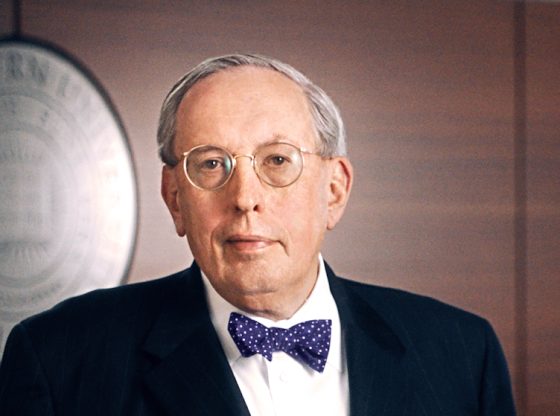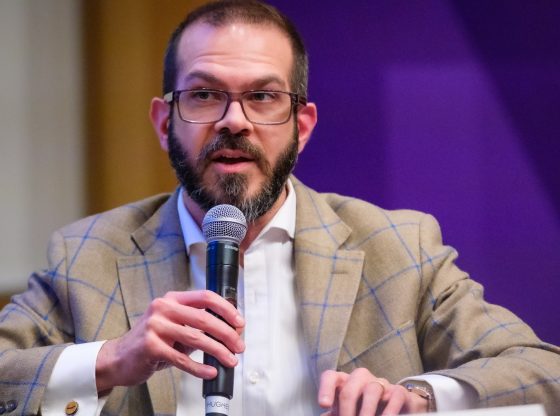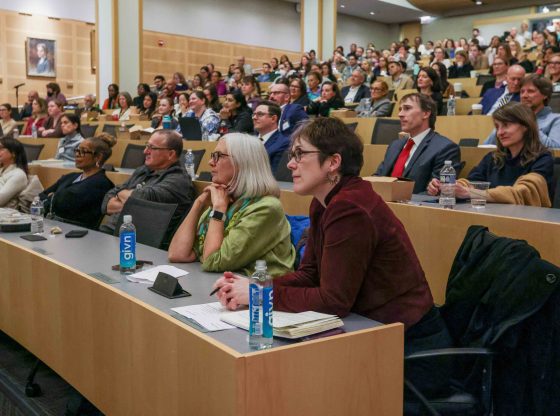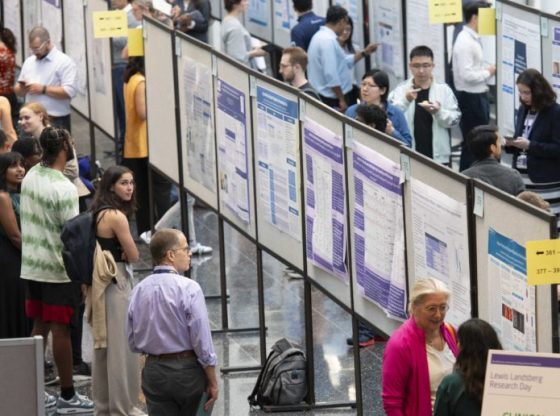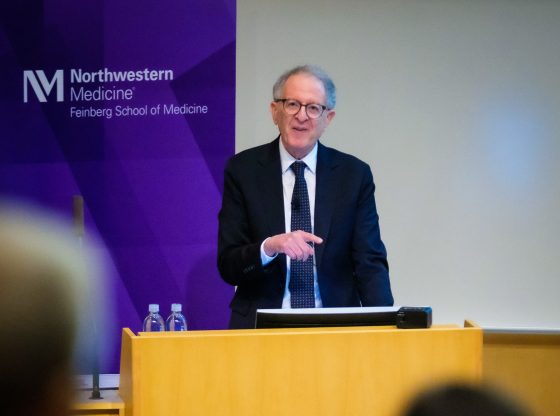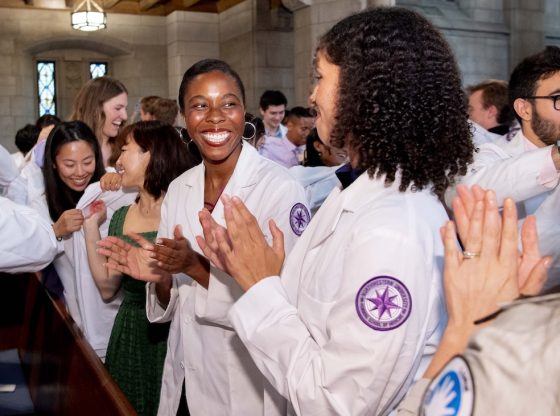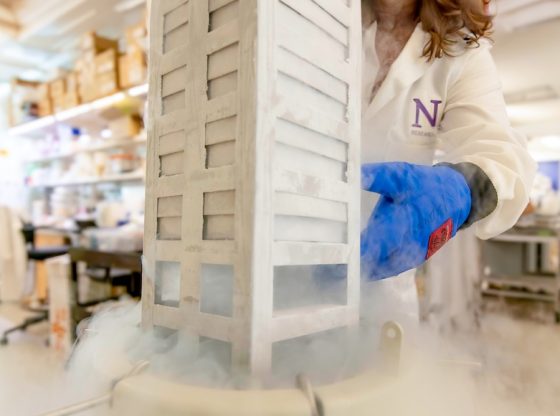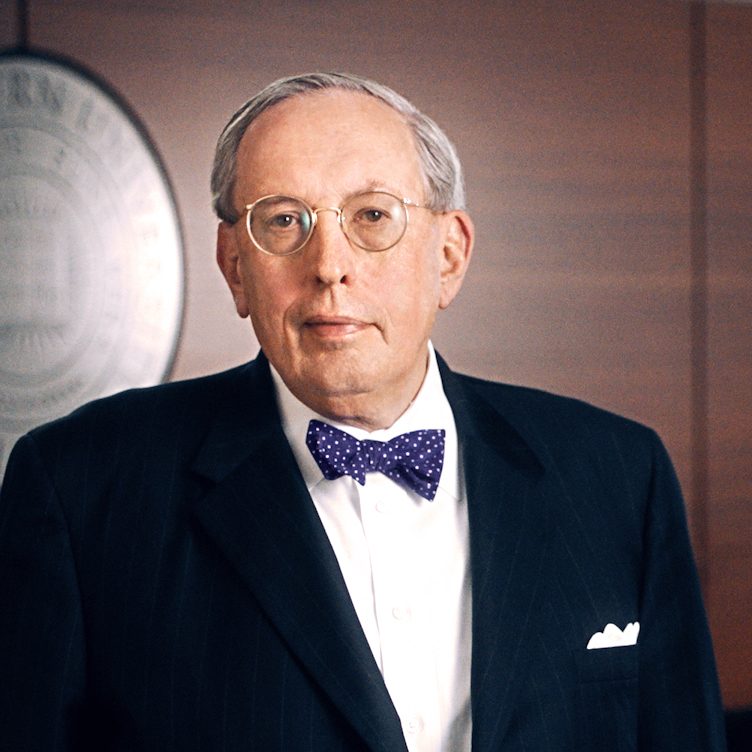
Vice President for Medical Affairs
Lewis Landsberg Dean
In academic tradition, autumn is a time of renewal. As the air turns cooler along our lake and the campus leaves turn, we have already welcomed a new generation of students and trainees to campus. Their eagerness to learn a profession and ours to teach reminds us of shared values and commitments we offer each other. Their presence renews not only our many missions, but our spirits. Each generation brings new perspective, new ideas, and new questions.
Indeed, the 2020 entering classes have joined our community at a critical point in history. We have worked relentlessly over the spring and summer months to address the COVID-19 pandemic. We have seen exceptional care at the bedside, extraordinary preparation and service by our clinical affiliates, and robust initiatives by many faculty responding to scientific and educational challenges.
Amidst this pandemic, our entering classes, students, and trainees also are bearing witness to a national reckoning on race and racism. I, along with many other leaders at Northwestern, have said, unequivocally, that social injustice and institutional racism are infectious diseases and a public health crisis. This summer, our entire Northwestern Medicine community has responded tangibly and with great urgency to confront institutionalized racism head on (you can read more about this in the story “Responding to Racism”).
Building on work taking place around the institution, in cooperation with our academic community, Feinberg recently published a comprehensive report to the faculty on social justice initiatives at the medical school, which included ten usable recommendations from four dedicated advisory groups comprising faculty, staff, students, and residents on how we might move forward. These recommendations covered microaggressions and use of race in lectures, clinical presentations, and laboratory algorithms; evaluation bias; community engagement; and faculty recruitment. Work on these initiatives is progressing — it will require time and a collective commitment to equity. Our entire campus has shown a great willingness to embrace change and advance our cultural awareness.
I have learned that the best way to be better is to make it a point to be a little better each day.
Eric G. Neilson, MD
But our work is not done. As we look ahead to the future for this new generation of physicians, allied health professionals, and scientists, we must ask ourselves, what have we learned? What have we done? How can we do better? I have learned that the best way to be better is to make it a point to be a little better each day.
As I read the pages of this issue, I felt immense pride in the many ways our medical school community lives up to this aspiration. Feinberg investigators across departments are working to make healthcare delivery in our country better by uncovering the data behind poor health outcomes for people of color (you can read about it in “In Pursuit of Equity”).
Another commitment to solving a seemingly intractable problem has been amply demonstrated by Richard D’Aquila, MD, who just assumed the helm of the Northwestern University Clinical and Translational Sciences (NUCATS) Institute. D’Aquila has been working toward a cure for HIV/AIDS for the past 30 years, not resting on standard antiretroviral therapy — a treatment approach that he was instrumental in developing and that works — because he knows science can do better for quality of life. In his new position, he is bringing the same persistence to COVID-19 and community-based research, wherein NUCATS is doing its part to ensure that translational science affecting real people is not conducted in an academic bubble (“Basic Science Believer”).
The push to be better continues with the Socrates Project, spearheaded by Benjamin Singer, MD. He and his clever team of chief residents tackle difficult-to-diagnose diseases to help Northwestern Medicine physicians provide answers to patients who have found themselves at a loss for what is ailing them (“The Socrates Project”). Meanwhile, Northwestern Medicine’s new Gender Pathways Program was designed for patients who often feel marginalized by the traditional clinical setting — a better way to treat people on a difficult journey (“Becoming Jake”).
As I reflect on the lessons we take from what’s happening on campus today, and as tumultuous as times seem, I remain truly optimistic over our shared future. Together, we are learning how to be better — how to do better — for each other. Creating an intentionally inclusive institution free of bias will allow for more diversity of intellect, more powerful and challenging inquiries into the root causes of disease, caregivers who better reflect the entire patient population, and an academic health system that fully reflects our ambitions for each and every one of us who is a part of it.
The path ahead is not straightforward or easy, but, as we start off the academic year, let’s do so with a sense of renewal and resiliency. With a deep belief that it is never too late to be better.
Eric G. Neilson, MD
Vice President for Medical Affairs
Lewis Landsberg Dean

